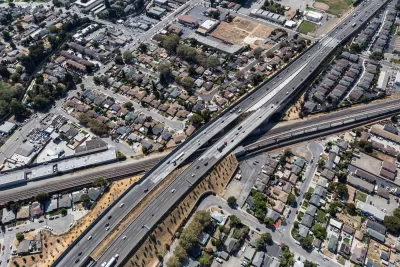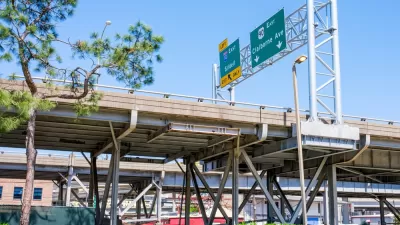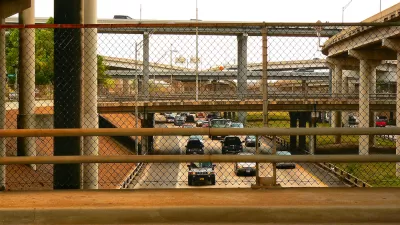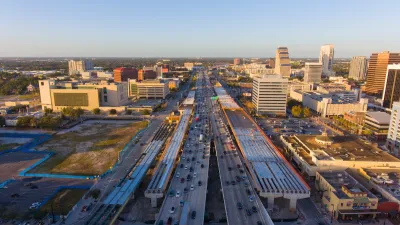The Biden administration has pledged to correct the damage imposed on communities by highways and infrastructure, but many projects are only committing to minor improvements, not transformative changes.

Recognizing the impacts of rampant highway construction and other infrastructure on urban neighborhoods and communities of color, the Reconnecting Communities Act and other recently created federal programs aim to redress the damage. Writing in The New York Times, Mark Walker describes the Biden administration’s efforts “to address racial disparities resulting from how the United States built physical infrastructure in past decades.”
As Walker explains, “The Transportation Department has awarded funding to dozens of projects under the goal of reconnecting communities, including $185 million in grants as part of a pilot program created by the $1 trillion bipartisan infrastructure law.” But “Once you wreck a community, putting it back together is much more work than just removing an interstate,” says Transportation for America director Beth Osborne.
Walker describes one such effort in Kansas City, where $5 million in federal funding is fueling planning for pedestrian overpasses and transit infrastructure to improve conditions around U.S. Highway 71, which “displaced thousands of residents and cut off predominantly Black neighborhoods from grocery stores, health care and jobs.” The city doesn’t envision removing the highway altogether, but rather adding connections to safely link the neighborhoods on either side.
FULL STORY: Highways Have Sliced Through City After City. Can the U.S. Undo the Damage?

Alabama: Trump Terminates Settlements for Black Communities Harmed By Raw Sewage
Trump deemed the landmark civil rights agreement “illegal DEI and environmental justice policy.”

Study: Maui’s Plan to Convert Vacation Rentals to Long-Term Housing Could Cause Nearly $1 Billion Economic Loss
The plan would reduce visitor accommodation by 25% resulting in 1,900 jobs lost.

Planetizen Federal Action Tracker
A weekly monitor of how Trump’s orders and actions are impacting planners and planning in America.

Waymo Gets Permission to Map SF’s Market Street
If allowed to operate on the traffic-restricted street, Waymo’s autonomous taxis would have a leg up over ride-hailing competitors — and counter the city’s efforts to grow bike and pedestrian on the thoroughfare.

Parklet Symposium Highlights the Success of Shared Spaces
Parklets got a boost during the Covid-19 pandemic, when the concept was translated to outdoor dining programs that offered restaurants a lifeline during the shutdown.

Federal Homelessness Agency Places Entire Staff on Leave
The U.S. Interagency Council on Homelessness is the only federal agency dedicated to preventing and ending homelessness.
Urban Design for Planners 1: Software Tools
This six-course series explores essential urban design concepts using open source software and equips planners with the tools they need to participate fully in the urban design process.
Planning for Universal Design
Learn the tools for implementing Universal Design in planning regulations.
Caltrans
Smith Gee Studio
Institute for Housing and Urban Development Studies (IHS)
City of Grandview
Harvard GSD Executive Education
Toledo-Lucas County Plan Commissions
Salt Lake City
NYU Wagner Graduate School of Public Service





























